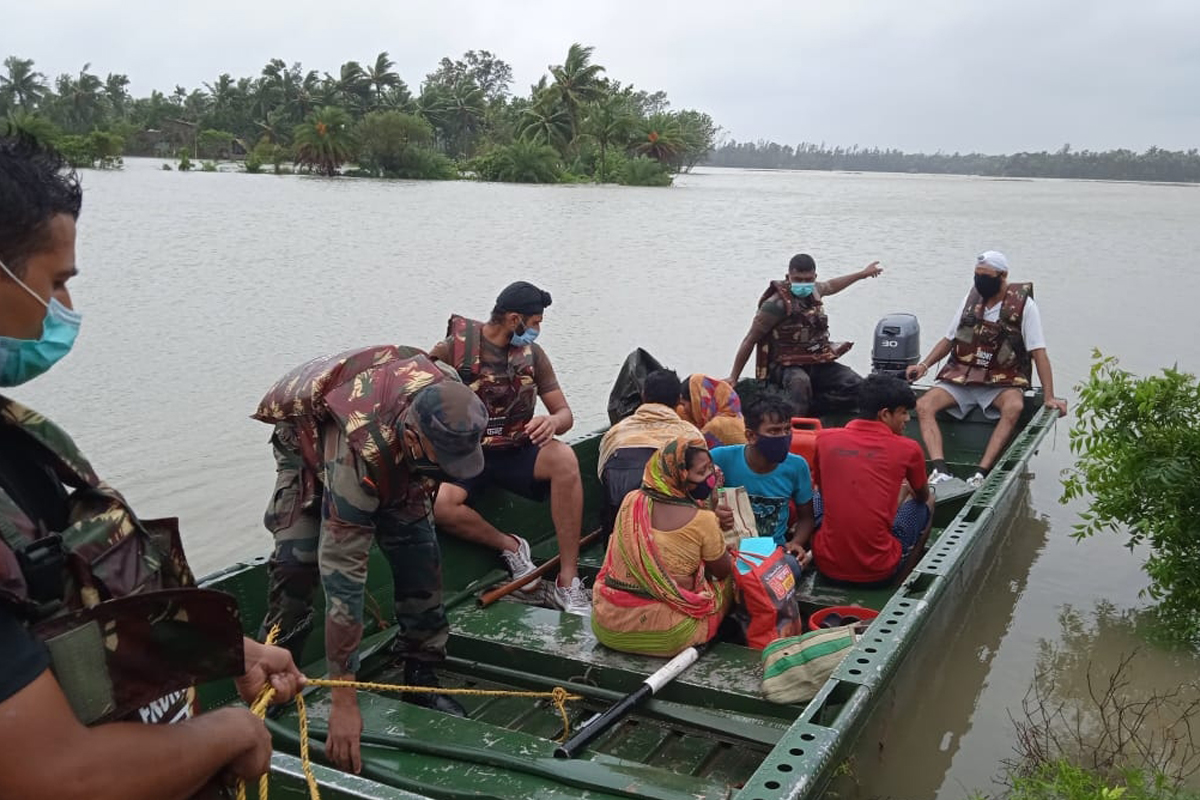It will be a quirk of nature if indeed what they call summer floods are threatening Odisha in the immediate aftermath of Cyclone Yaas. Though the cyclone had targeted both coastal Bengal and Odisha on May 26, it is the latter that has indubitably borne the brunt, albeit to a lesser degree than with Cyclone Phailin that had battered the Puri coast two years ago. This year the Puri coast has mercifully been spared.
It must be conceded that it was the alacrity of the administration in Bhubaneswar that contained the damage the cyclone could have caused. This time, the severe storm a day after Yaas struck has made the possibility of fairly extensive floods dangerously real. With remarkable promptitude, Chief Minister Naveen Patnaik, after an aerial survey, has urged the administration to gear up if the flood threat is to be countenanced.
Advertisement
Nay more, he has announced seven days of relief for those in submerged areas, which are fairly extensive, notably in the districts of Bhadrak, Jajpur, and Kendrapara. Indeed, there are fears of what they call a “medium level flood” in the Baitarani river system because of heavy rain in its upper catchment. Going by the projections of the Indian Meteorological Department, Yaas has moved from Odisha to Jharkhand via Balasore and Mayurbhanj, resulting in heavy rain in as many as 200 blocks of the coastal belt, notably Keonjhar, Sundargarh, Mayurbhanj and Deogarh.
Attempts are being made to divert flood water from entering human habitation in the lower catchment. The Baitarani is flowing above the danger level in two villages of Keonjhar district, and fears of imminent floods are not wholly unfounded. It isn’t easy to cope with floods almost immediately after a cyclone and in the midst of a challenging pandemic.
Odisha, at this juncture, is lunging from one calamity to another. Cyclone Phailin, not to forget the super cyclone of 1999, demonstrated that Odisha may yet show the way. Closely intertwined with a natural calamity is public health, not the least because of the resurgence of coronavirus in its second wave. An estimated 6.5 lakh people, evacuated on the eve of Yaas and now languishing in shelters, are to be screened for Covid-19.
It was an emergency situation and though the basic precautions were taken, the state government cannot afford to rule out lapses. The Chief Minister has directed that the health of those evacuated “should be monitored”. A door-to-door survey envisages a check on the health status. The state had suspended Covid-19 testing, vaccination and door-to-door surveys in Balasore, Bhadrak and Mayurbhanj in view of the cyclone from May 25 to 27.
Partial suspension was ordered in several other districts as well. There are risks involved in the evacuation of hundreds of thousands. Odisha faces a double whammy if ever there was one.









